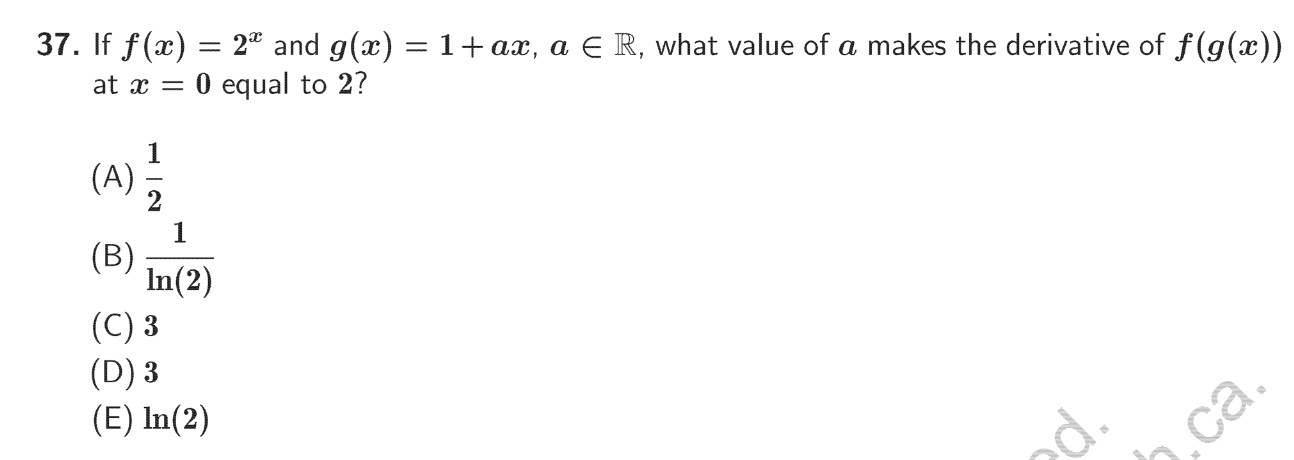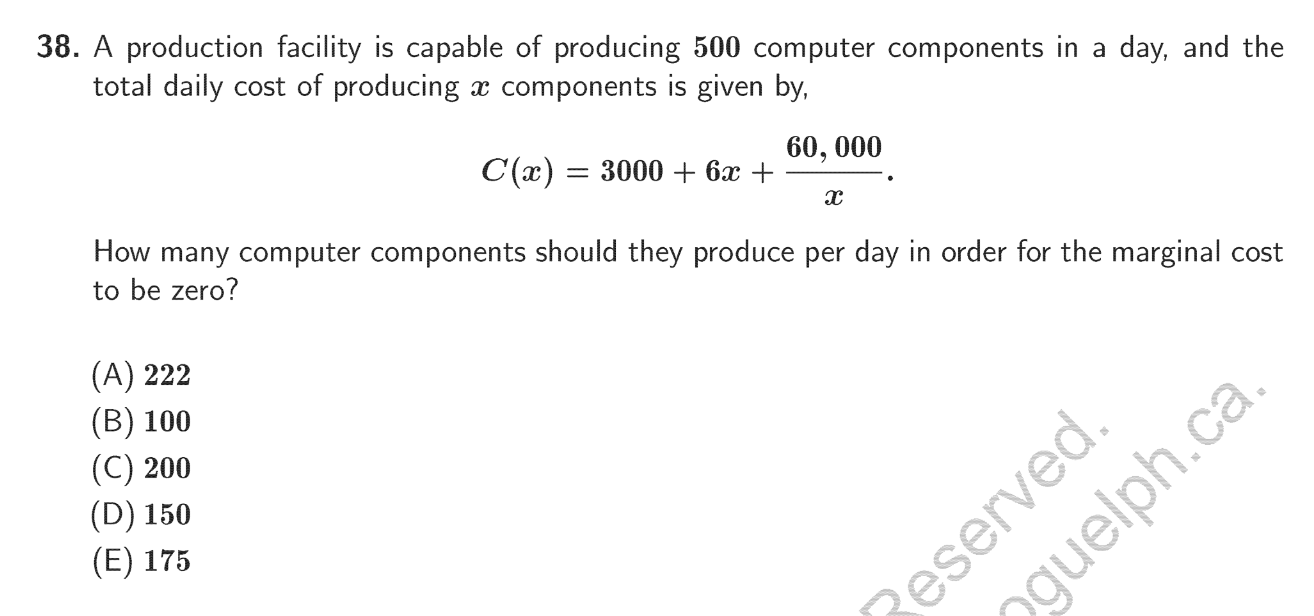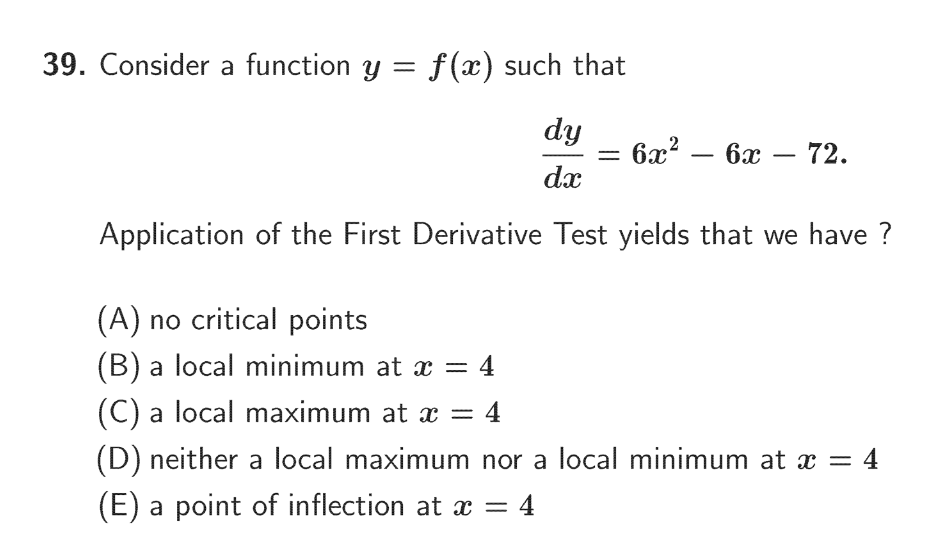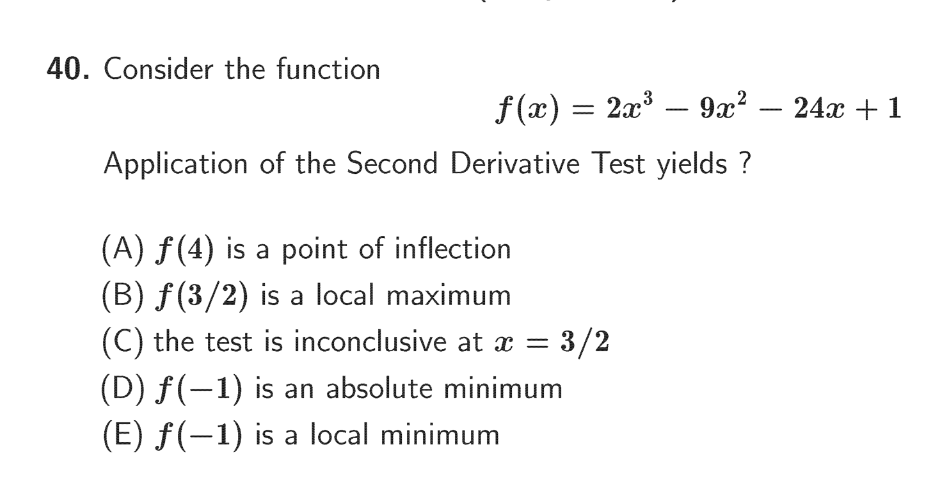Answered step by step
Verified Expert Solution
Question
1 Approved Answer
37. If f(a) = 2 and g(x) = 1 + ax, a ER, what value of a makes the derivative of f(g(ac)) at * =




Step by Step Solution
There are 3 Steps involved in it
Step: 1

Get Instant Access to Expert-Tailored Solutions
See step-by-step solutions with expert insights and AI powered tools for academic success
Step: 2

Step: 3

Ace Your Homework with AI
Get the answers you need in no time with our AI-driven, step-by-step assistance
Get Started


